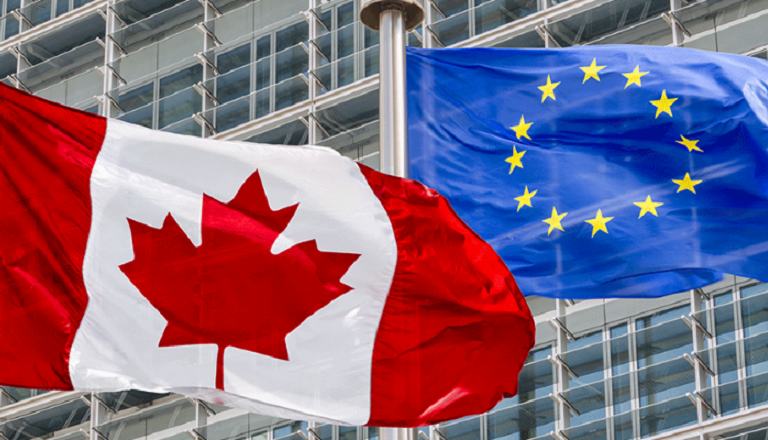Canada has always punched above its weight in the global aerospace market and now, with the provisional implementation of the Comprehensive Economic and Trade Agreement (CETA) last year, there are even more opportunities for us to broaden the sector’s international reach.
While the U.S. will remain Canada’s primary market for aerospace products and services for the foreseeable future—it accounts for well over half the sector's annual exports—the existing collaboration between the European and Canadian sectors should be further strengthened by CETA.
A look at Canada’s aerospace industry
If you like facts and stats, you’ll appreciate the numbers surrounding Canada’s undisputed aerospace sector success. We rank third in global civil aircraft production activity and export nearly 80 per cent of our aerospace products to highly diversified markets and product segments. The sector contributed $28 billion to GDP in 2016 and created 208,000 jobs. We were fifth in aerospace exports by value (US$10.3 billion) in 2016, behind the U.S., France, Germany and the UK, and the second biggest exporter of aerospace products to Europe after the U.S.
Quebec dominates the Canadian aerospace sector. With 205 companies whose primary business is in aerospace, Greater Montreal is the world’s third most important aerospace centre after Seattle and Toulouse and has the second highest density of aerospace jobs, with one person in 54 working in the sector.
How will CETA benefit Aerospace exporters?
When people ask me how CETA will affect Canadian companies, I tell them CETA is a game changer for virtually every sector of the Canadian economy, including aerospace. When fully phased in, Canada and Europe will eliminate tariffs on more than 99 per cent of the goods they trade.
As the world’s largest aerospace market—$109 billion in imports in 2016, 32 per cent of the world’s total—Europe in the CETA era offers Canadian exporters a valuable competitive advantage over companies based in countries that do not have a preferential trade agreement in force with the EU.
- Tariffs: Under CETA, all EU tariffs on Canadian aerospace products have been eliminated, as have all EU tariffs on Canadian aerospace products for military use.
- Rules of origin: The CETA rules of origin for aerospace products are clear and simple and allow products produced using non-originating parts and materials to qualify for duty-free access to the EU market.
- Ease of entry: CETA provisions make it easier for short-term business visitors, intra-company transferees, investors, contract service suppliers and independent professionals to conduct business in the EU.
- Access to procurement opportunities: The agreement also provides Canada access to procurement opportunities at the sub-central level (regions and municipalities) and bodies governed by public law, as well as access to European public utilities.
Major opportunities for Quebec's aerospace cluster
Other positive signs include the recent acquisition by Airbus of a majority stake in Canada’s Bombardier’s C Series Aircraft Limited Partnership and the signing last year of a mutual collaboration agreement between Aéro Montréal, Québec's aerospace cluster, the European Aerospace Cluster Partnership (EACP) and Hamburg Aviation, all early indications of the benefits of closer ties.
According to the two companies, the Airbus partnership gives Bombardier access to Airbus’ global reach and scale and will create significant value for customers, suppliers, employees and shareholders. It will also lower the C Series production costs by leveraging Airbus’ supply chain expertise.
The Aéro Montréal agreement will give Québec companies access to a network of 40 European aerospace clusters, representing 4,300 companies and 430 research centres in 15 countries.
Want more help in understanding CETA?
While CETA is undeniably good news for Canadian aerospace exporters, navigating the agreement can be confusing. Fortunately, help is at hand. Export Development Canada, the Canadian Trade Commissioner Service and Aéro Montréal all have specialists available in Canada and Europe to assist experienced and new exporters with advice, guidance and on-the-ground introductions to help them on their way.
EDC also has an on-demand webinar, CETA: Unlocking the Potential, which brings together a dynamic panel of trade experts and business leaders to explain what the agreement covers and provide answers on what your company can do to get the most out of the agreement.







